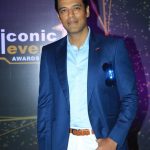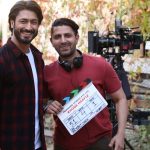Akshay Varma came to Mumbai to become a musician and today, he is mostly known as the person who taught Ayushmann Khurrana the piano for the critically acclaimed ‘Andhadhun’ (2018). Hindi songs like “Teri Galiyon Mein”, “Yeh Jeevan Hai”, and “Guzar Jaayein Din” were recreated by him. At the start of the year, his first single, “Sawariya”, was released on ZEE5 as part of the Big Golden Voice Season 6. It features one of the finalists Shib Prasad along with Shweta Pandit. His father, who is an engineer by profession, is a brilliant accordionist and harmonica player. He would play the accordion and harmonica, and make him listen to music from around the world and he started getting into the groove at a very early age. After scoring a series of TV commercials for NEXA, Axis Bank, he scored for a short film called ‘Grey’. Directed by Priya Aven and produced by Viacom, the short film was very well received and appreciated. Now, his latest single, “Chadha Rang” released on T-Series, is making waves.
Describe “Chadha Rang” in 3 words only.
Happy, love, song!
Why did you choose to work with Sona Mohapatra?
“Chadha Rang” was actually created keeping her voice in mind. I’ve been a big fan of her voice and I knew she is the only who could do justice to this song. So there was never a second thought about who would sing it!
What brief was given to you for ‘Andhadhun’?
Akaash’s character is that of a blind concert pianist. Sriram Sir [Sriram Raghavan] wanted it to be as authentic as possible. So we not only had to train him for piano lessons and finger movements, but also for the body language of a blind pianist. A lot of detailing and hours of practice went into shaping his character.
How does it feel to know that ‘Andhadhun’ has been appreciated worldwide?
I feel so fortunate to be a part of such an amazing film. To be able to work with a legend like Sriram Raghavan is a blessing in itself! The film surpassed all our expectations and the response has been so overwhelming! I couldn’t have asked for more.
What is your fascination with the piano?
I have always been in love with the piano. It’s one of the most complete and expressive musical instruments out there. I feel I can express myself musically the best with the piano.
How old were you when you composed your first song? Can we listen to it somewhere?
I was 14 when I composed my first song. It was a very innocent love song. I am yet to release it!
Do you consider yourself a versatile composer? Why or why not?
I have never tied myself down to one genre or style of music. When it comes to music for commercials, film songs and background music, one has to follow the brief and create accordingly. That’s where I believe your training and exposure to different styles comes in handy.
Are YouTube hits the real indication of success?
YouTube hits are important in terms of the reach of the song. However, they are not the only indicator of a song’s success. When people truly appreciate a song, you can hear it all around you – on radio, on music channels, at events, shows and functions. So it’s not uncommon to see a lot of songs on YouTube which have millions of hits but people have not really heard about them.
What types of songs are the most difficult to compose?
I feel every type of song comes with its own set of challenges. One might be comfortable in a particular genre or style but as a composer, you need to be flexible and have the ability to get out of your comfort zone. That’s when you grow as an artist.
What type of music training did you receive and how is it helping you?
I studied piano and music theory from the Trinity College of Music London and Royal College of Music boards. I trained in Hindustani music and learned tabla as well. I hold a degree in music composition from the Chicago College of Performing Arts, Roosevelt University. I went on to study film scoring at the University of California, Los Angeles, and assisted composers there. When you are trained in classical music, it helps you develop your own compositional voice. It also gives you a very strong foundation to understand and create music in different styles.
What is the importance of rhythm and melody in your compositions?
Rhythm and melody are the foundations of a composition. I feel melody has to be memorable, catchy, and hummable for the audience.
You have used a few instruments in “Chadha Rang”? Who orchestrated this piece?
All the instruments for “Chadha Rang” were recorded live which is quite a rarity these days. I, along with my music producer friend Anirban Saha, orchestrated the whole the piece.
Ayushmann Khurrana is musically knowledgeable. Was it hard to teach him considering his experience? And what did you learn from him?
We were able to achieve so much with Ayushmann because he is a musician himself. His sense of pitch and rhythm is very strong. On top of that, he is incredibly hard working and sincere and the result is there for everybody to see!

